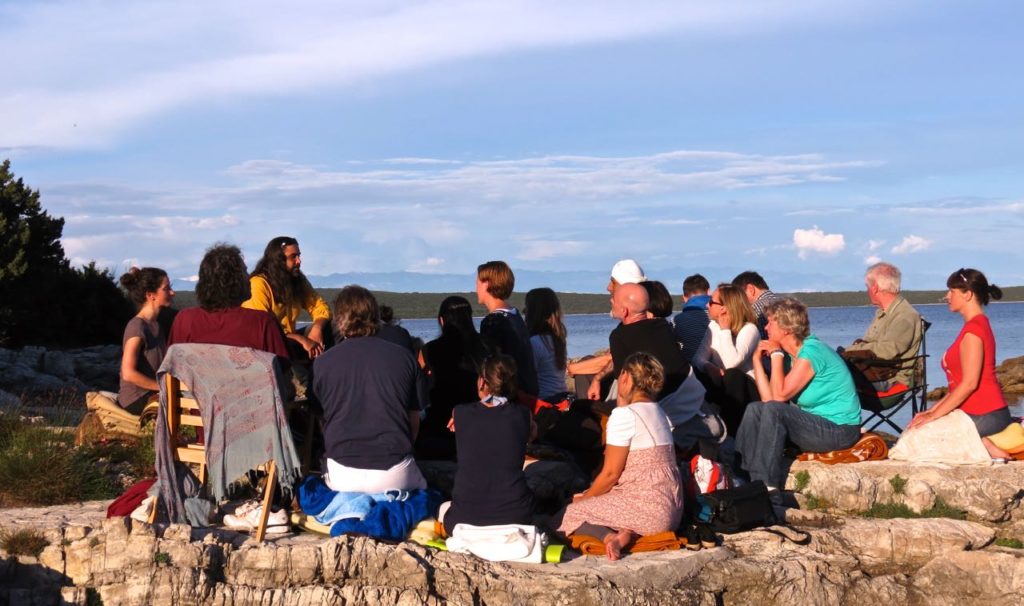“Satsang is not a path. It´s the end of the search”
Shanti
Satsang is a gathering of people in search of their true nature.
To sit with an awakened Master in Upanishad* helps the disciple to experience the Self beyond the mind. It is here that many concepts, which have their roots in the mind, can be dropped and the true self can be recognised and experienced.
Satsang traditionally takes place as evening event for several hours. Every event is self-contained, it is not a course. The atmosphere is casual and natural and sometimes also ceremonial-devotional. Everyone can talk about everything. Phases of silence alternate with phases of questions and answers. Nobody has to say anything, but everybody can.
The word Satsang describes a special spiritual line of Indian “Advaita-Vedanta” in the USA and Europe. It is a teacher-disciple line, which originates with Sri Ramana Maharshi and his disciple H.W.L. Poonja, also known as “Papaji.” Through his disciple Gangaji, Satsang first came to the USA, later also to Europe.
Shantiji was already connected with the tradition of Advaita-Vedanta, through his birth in the Indian family of the Chritrapur Saraswat Brahmans. Through the deeply enlightening meeting with Gangaji, he also became a Satsang teacher in this unique line of Advaita-Vedanta from Sri Ramana Maharshi.
In Satsang, Shanti leads us to enquire into our True Being. The depth of the experiences in Satsang depends on the readiness and sincerity of the enquirer, on the one hand and on the spiritual presence of the teacher, on the other. While questions may be asked and words may be spoken, a non-verbal transmission takes place and awakening-experiences can happen.
Awakening to who we are is deeply liberating and it is the first step to a world beyond suffering. After a first awakening-experience, we can continue to deepen our awakening and actually begin “living in reality.” By attending Satsang on a regular basis, awakening can be stabilised, which will start to penetrate and transform life into a wholesome, loving and joyful Beingness.
* Key Words
From the ancient spiritual Indian language, Sanskrit:

